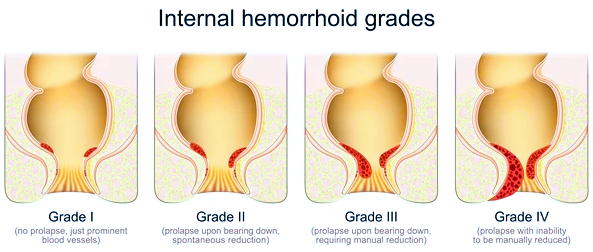Hemorrhoids: Causes, Symptoms, Treatment, and Precautions
Explore hemorrhoids, including their causes, symptoms, treatments, and precautions. Learn how to manage and prevent hemorrhoids effectively. #Hemorrhoids#piles


Hemorrhoids, also known as piles, are swollen veins in the lower rectum and anus. They can cause discomfort, pain, and bleeding. Hemorrhoids can occur internally, within the rectum, or externally, around the anus. In this article, we will explore the causes, symptoms, treatment options, and preventive measures for hemorrhoids.
Causes of Hemorrhoids
Hemorrhoids can be caused by various factors, including:
Straining during bowel movements
Chronic constipation or diarrhea
Pregnancy and childbirth
Obesity
Prolonged sitting or standing
Aging
Genetic predisposition
Symptoms of Hemorrhoids
The symptoms of hemorrhoids may vary depending on the type and severity. Common symptoms include:
Pain or discomfort in the anal area
Itching or irritation around the anus
Bleeding during bowel movements
Swelling or lumps near the anus
Leakage of feces
Treatment Options for Hemorrhoids
There are several treatment options available for hemorrhoids, depending on the severity:
Home remedies: Mild cases of hemorrhoids can often be managed with simple home remedies, such as increasing fiber intake, drinking plenty of water, and practicing good hygiene.
Over-the-counter medications: Topical creams, ointments, or suppositories containing hydrocortisone or witch hazel can help alleviate symptoms.
Medical procedures: In more severe cases, medical procedures like rubber band ligation, sclerotherapy, or surgical removal may be recommended.
Preventive Measures for Hemorrhoids
While it may not always be possible to prevent hemorrhoids, certain measures can help reduce the risk:
Follow a high-fiber diet: Consuming foods rich in fiber can promote regular bowel movements and prevent constipation.
Stay hydrated: Drinking an adequate amount of water can soften stools and make them easier to pass.
Avoid straining: Avoid straining during bowel movements and try not to sit on the toilet for prolonged periods.
Exercise regularly: Engaging in regular physical activity can improve digestion and prevent constipation.
Maintain good hygiene: Clean the anal area gently after bowel movements and avoid using rough toilet paper.
If you experience persistent or severe symptoms of hemorrhoids, it is important to consult a healthcare professional for a proper diagnosis and appropriate treatment.
In conclusion, hemorrhoids are a common condition that can cause discomfort and pain. Understanding the causes, recognizing the symptoms, and taking preventive measures can help manage and alleviate the symptoms of hemorrhoids.
